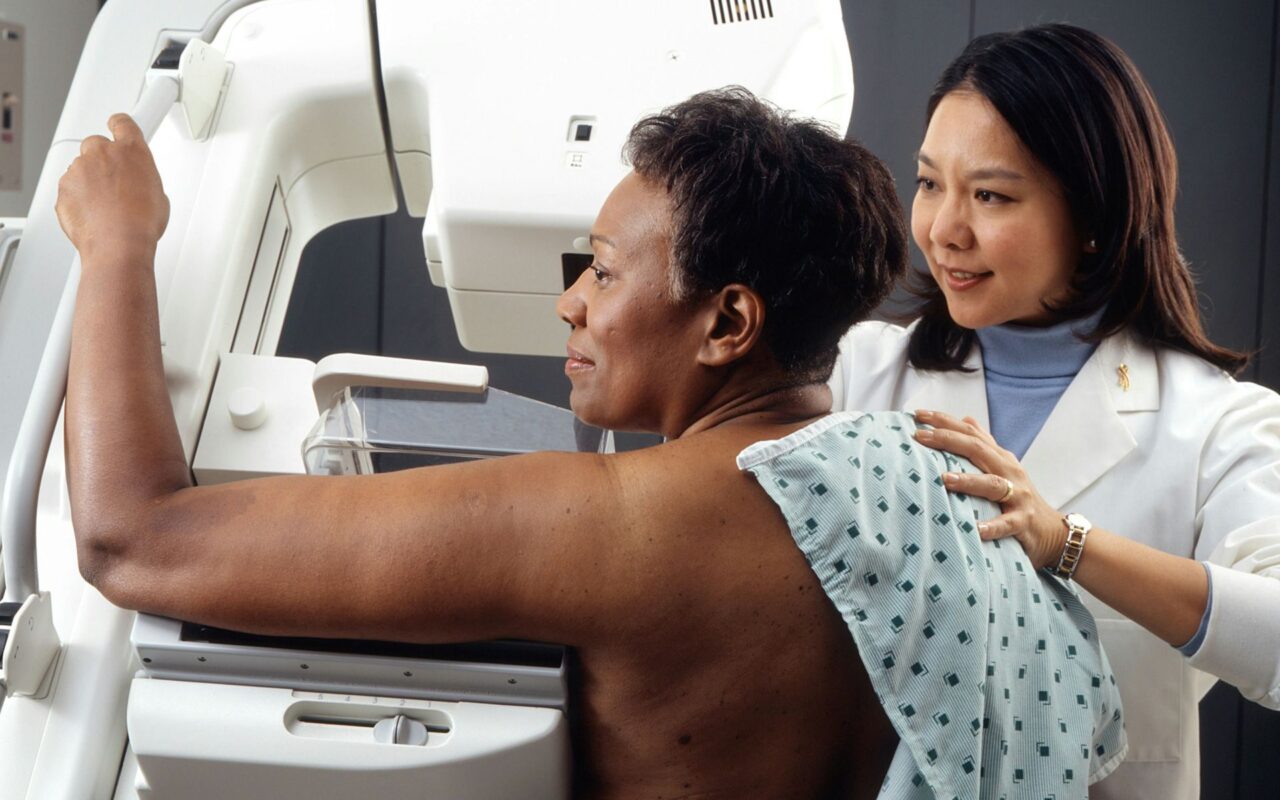Olubukola Ayodele, Consultant Medical Oncologist at the University Hospitals of Leicester NHS Trust, shared a post by Mike Kinnaird on LinkedIn:
” ‘I didn’t think Black women got breast cancer…’
This heartbreaking phrase is one I’ve heard far too often—and it’s exactly why I recently joined Mike Kinnaird, the producer of Cancer Can Do One on a powerful podcast conversation to talk about the deep-rooted disparities ethnic minority groups face in breast cancer awareness, diagnosis, and outcomes in the UK. https://lnkd.in/dB-zbd83
As a Black female breast oncologist, I carry a dual perspective—medical expertise and lived experience. I know how dangerous it is when our communities are left out of national health conversations. When awareness campaigns rarely feature women who look like us, it fuels a silent epidemic of invisibility.
Here’s the reality:
– Black women in the UK are often diagnosed later and with more aggressive subtypes like triple-negative breast cancer.
– We face lower survival rates, not due to biology alone, but due to systemic inequities.
– There’s a lack of culturally tailored education, underrepresentation in screening promotions, and fewer targeted outreach efforts.
– Many women still believe breast cancer is a “white woman’s disease.”
That misconception can cost lives.In the podcast, I shared:
– Why representation in campaigns isn’t just a “diversity checkbox”—it’s a public health necessity.
– The need for earlier, culturally sensitive education and outreach in Black and minority ethnic communities.
– How healthcare professionals can better listen, communicate, and build trust with underserved populations.
– What we can do collectively to shift the narrative—from policy changes to grassroots empowerment.Visibility saves lives. When women see themselves reflected in awareness efforts, they’re more likely to seek help, attend screening, and believe that early detection applies to them too.
I’m proud to use my voice to bridge the gap between healthcare systems and the communities they too often overlook. But there’s still much to be done.
If you’re working in oncology, public health, community advocacy—or just care about equity in cancer care—I encourage you to listen, share, and join the conversation.
On Spotify
On Apple
On PodbeanLet’s dismantle the myths and build a breast cancer awareness landscape that includes all women.”
Quoting Mike Kinnaird’s post:
“Breasts are a private matter. Talking about them, touching them, exposing them to examination. Photograph them? No. Absolutely not comfortable with any of that. At all. That’s not what we do.
And anyway. Breast cancer is a white woman problem – so it doesn’t affect me, does it?
Cultural conversations are just one part of the serious cancer conversation issue. The visual messaging relied on by much of the online and print media – even that occasionally of some charities – can show a white woman at a breast screening clinic. Rarely are those media stock photos of a woman from black or Asian communities. I did manage to find one as you can see.
What exactly are those women supposed to think if they don’t recognise themselves thanks to lazy and potentially dangerous content? Why would they..?
Cancer presents itself differently, not all doctors know what to look for because it’s different to white skin, the images, culture, jargon and language – it’s a horrible mix of barriers that is still putting lives at risk. Which all sounds like a cliché mix until you talk with Dr Olubukola Ayodele.
Bookie, as she calls herself, is a Consultant Medical Oncologist and heads the Breast Cancer Unit at the University Hospitals of Leicester NHS Trust in the UK. She also sits on the European Cancer Organisation Inequalities Network.
Bottom line is, she’s tired of women being diagnosed too late because no one told them what cancer awareness actually means to them.
And she needs your help in getting accurate cancer awareness out there. Please don’t hesitate in sharing her conversation. Could you help OncoDaily?
It’s the latest episode out today, on the CancerCanDoOne podcast. Part of Louth Run For Life.”
More posts featuring Olubukola Ayodele on OncoDaily.


